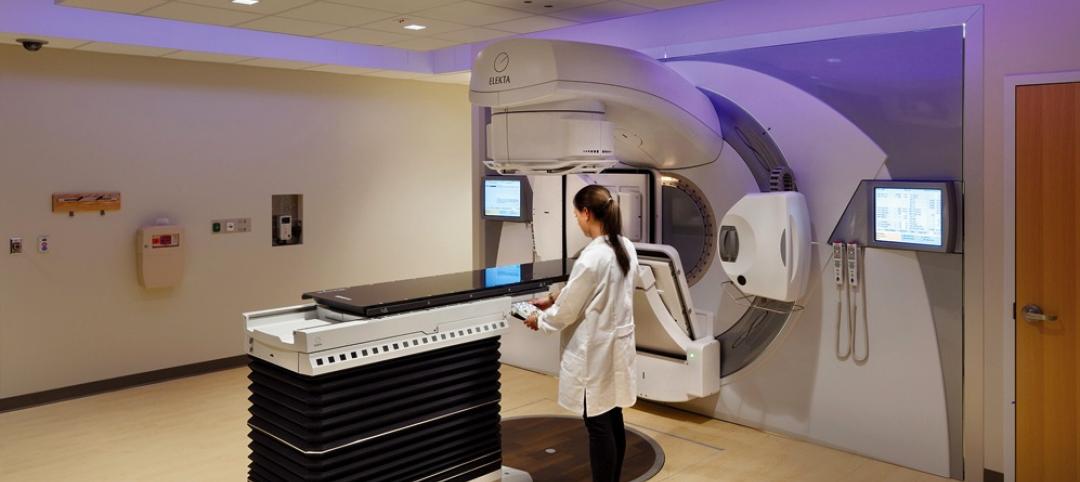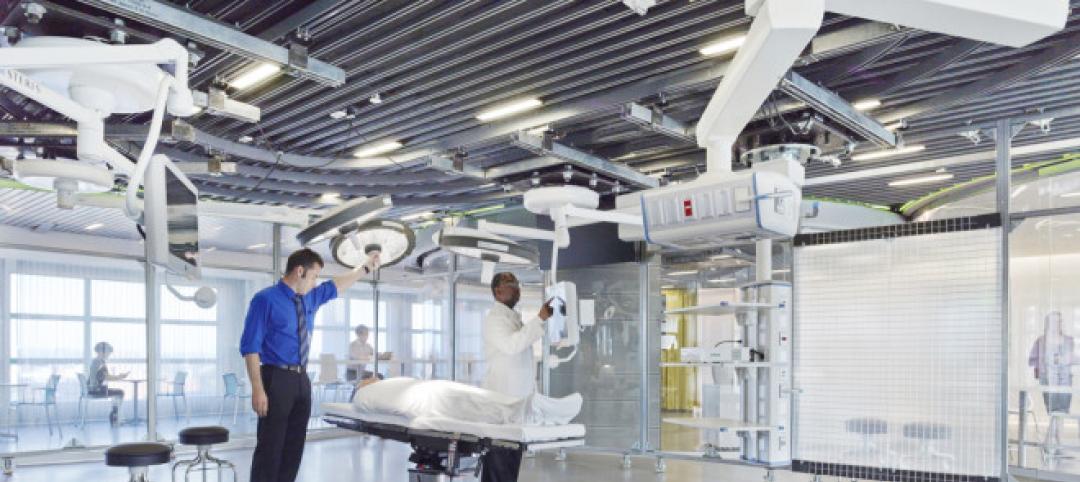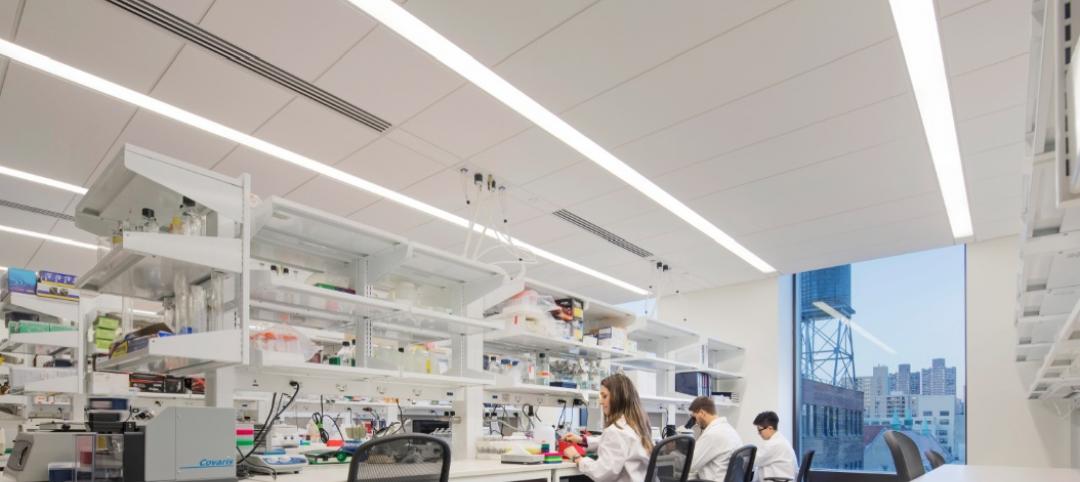Mid-twentieth-century projects are in a state of limbo. In many cities, safeguards against quick demolition don't even cover “new” buildings built after 1939, yet many such buildings may be obsolete by current standards. The Farmers and Mechanics Savings Bank, located in downtown Minneapolis, was one such building, a rare example of architecture from a time when American design was big, strong, and proud, but because of the Depression, actual building was rare.
The 1942 McEnary and Krafft-designed banking hall, on the National Register of Historic Places, was notable for its classic Streamline Moderne design touches. Its tower addition, which opened in 1963, featured sleek, International Style lines reminiscent of New York's Rockefeller Center and accented with bas-relief carvings on the limestone exterior and stylized owls in the glass blocks above the main entry.
But by 2005, the F&M Savings building sat empty on one of Minneapolis's busiest thoroughfares. Luckily, F&M Savings caught the eye of Ryan Cos., which was just completing the rehabilitation of the Minneapolis Sears building into the Midtown Exchange (see BD+C October 2006, p. 42). The grand lobby, with its tiered ceiling, marble floors, and wood paneling, encouraged the Ryan firm to have local architects Elness Swenson Graham review the feasibility of transforming the bank into a Westin hotel. After the project was endorsed by Westin owner Starwood Properties, Ryan Cos. purchased the building and managed its modernization and restoration.
Converting the interior of the building to a 214-room, four-star hotel while simultaneously restoring the building's exterior to its original design aesthetic was no small task for Ryan Cos., which served as both design-build GC and developer. The Building Team also had to meet certain standards to keep the building on the U.S. Secretary of Interior's Historic Registry.
“This is an unusual project and a tough conversion because hotels are so formulaic—certain room sizes, bathroom locations,” said Reconstruction Awards honorary chair Walker Johnson, FAIA, principal with Lasky Architects, Chicago. “This type of building is much easier to do new.”
Gray paint that had been slathered over the 1963 tower addition was carefully removed from the curtain wall, resurrecting its original blue-green hue. New custom-made double-glazed windows and interior insulation of the curtain wall have made the tower energy efficient while retaining its original appearance. An entirely new plumbing infrastructure was installed to serve the 214 hotel rooms.
The guest rooms, located in the tower, include 19 suites to meet Starwood's requirements for the Westin brand.
“It's nice to see a building from this time period that people thought was worth saving,” said awards panelist Carrie Warner, senior project engineer at Halvorson & Partners, Chicago.
Related Stories
| Oct 21, 2014
Hartford Hospital plans $150 million expansion for Bone and Joint Institute
The bright-white structures will feature a curvilinear form, mimicking bones and ligament.
| Oct 13, 2014
Debunking the 5 myths of health data and sustainable design
The path to more extensive use of health data in green building is blocked by certain myths that have to be debunked before such data can be successfully incorporated into the project delivery process.
| Oct 8, 2014
Massive ‘healthcare village’ in Nevada touted as world’s largest healthcare project
The $1.2 billion Union Village project is expected to create 12,000 permanent jobs when completed by 2024.
| Sep 29, 2014
10 common deficiencies in aging healthcare facilities
VOA's Douglas King pinpoints the top issues that arise during healthcare facilities assessments, including missing fire/smoke dampers, out-of-place fire alarms, and poorly constructed doorways.
| Sep 23, 2014
Cedars-Sinai looks to streamline trauma care with first-of-its-kind OR360 simulation space
The breakthrough simulation center features moveable walls and a modular ceiling grid that allow doctors and military personnel to easily reconfigure the shape and size of the space.
| Sep 20, 2014
Healthcare conversion projects: 5 hard-earned lessons from our experts
Repurposing existing retail and office space is becoming an increasingly popular strategy for hospital systems to expand their reach from the mother ship. Our experts show how to avoid the common mistakes that can sabotage outpatient adaptive-reuse projects.
| Sep 14, 2014
Ranked: Top Veterans Administration sector AEC firms [2014 Giants 300 Report]
CannonDesign, Clark Group, and URS top BD+C's rankings of the nation's largest Veterans Administration building sector design and construction firms, as reported in the 2014 Giants 300 Report.
| Sep 7, 2014
Hybrid healthcare: Revamping inefficient inpatient units to revenue-producing outpatient care
It's happening at community hospitals all over America: leadership teams are looking for ways to maintain margins by managing underutilized and non-revenue producing space. GS&P's David Magner explores nontraditional healthcare models.
| Sep 4, 2014
Hospital CEOs, architects sound off on state of healthcare design
Healthcare construction will continue to feel the effects of radical changes in the delivery of care, according to healthcare leaders attending the annual Summer Leadership Summit of the American College of Healthcare Architects and the AIA Academy of Architecture for Health.
| Aug 26, 2014
6 lessons from a true IPD project: George Washington University Hospital
In its latest blog post, Skanska shares tips and takeaways from the firm's second true integrated project delivery project.
















